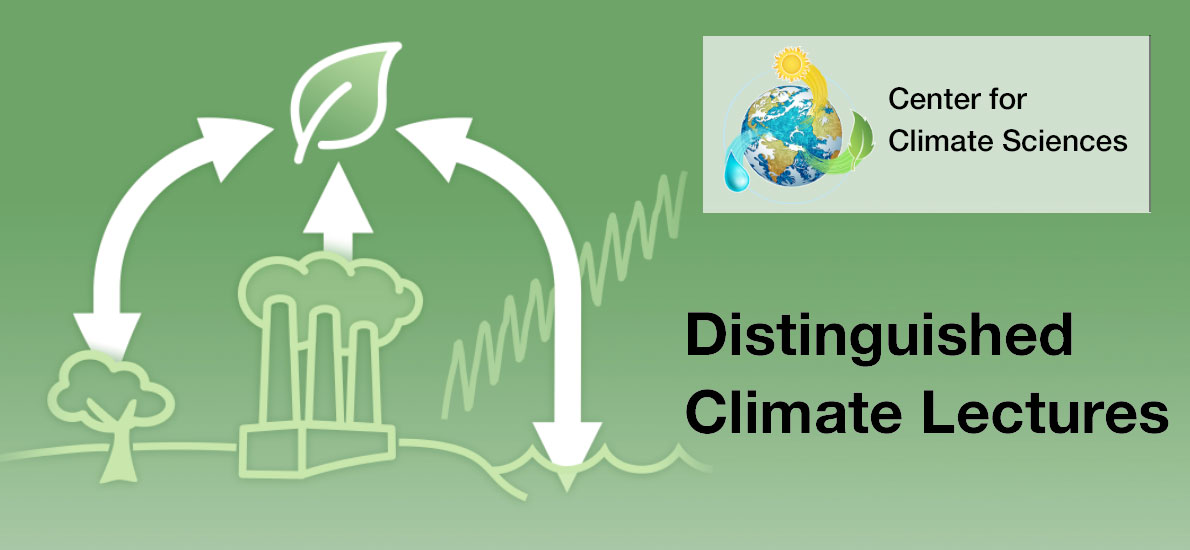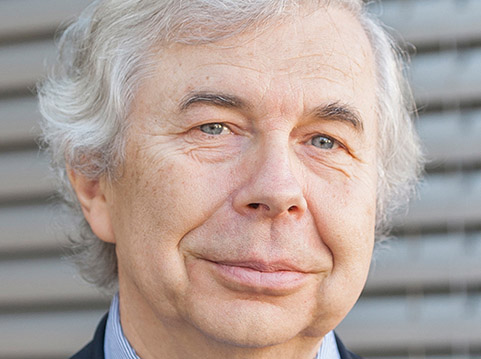Seminars
Towards a Worldwide Observing, Forecasting and Attribution System for Air Quality
July 20, 2022
| 321 Pickering Auditorium and Webex, 2:00 pm PT
› view lecture

About this Lecture

Each year, 4 million people die prematurely in the world from outdoor air pollution, to a large extent in low- and middle-income countries. Actions must therefore be taken to improve air quality. Specifically, a major effort is required to implement the latest standards adopted by the World Health Organization.
In support of air quality mitigation, the scientific community has developed observational and modeling tools to measure chemical species using monitoring stations, aircraft-borne instrumentation and satellites, to provide air quality forecasts at the global, regional and local scales, and to project future trends in the chemical composition of the atmosphere. The ultimate goal is to develop attribution approaches that are required to identify the major sources of pollutants and to take appropriate actions that will improve public health.
The seminar will review progress in the development of these tools and will discuss strategic options needed to improve air quality on each continent. Changes in the world economy tend to generate new hot spots and areas of concern about poor air quality. The development of a global network of public and private institutions to address the air pollution question with similarities with the global weather monitoring system is therefore required. It must be complemented by an active dissemination program. Examples of efforts in this direction will be presented.
About

Guy P. Brasseur was educated at the Free University of Brussels, Belgium where he earned two engineering degrees: one in physics (1971) and one in telecommunications and electronics (1974). He obtained his PhD degree in 1976 at the same University, but completed the work at the Belgian Institute for Space Aeronomy. Between 1977 and 1981, he served as an elected member of the Belgian House of Representatives, and was a delegate to the Parliamentary Assemblies of the Council of Europe (Strasbourg, France) and of the Western European Union (Paris, France). In 1990, Brasseur became Director of the Atmospheric Chemistry Division of NCAR. He served as Editor in Chief of the Journal of Geophysical Research (Atmospheres) between 1992 and 1996 and during the period 1994-2001, became Chair of the International Atmospheric Chemistry Project (IGAC) of the International Geosphere-Biosphere Program (IGBP). On 1 January 2000, Brasseur became Director at the Max Planck Institute for Meteorology in Hamburg, Germany and Honorary Professor at the Universities of Hamburg and Brussels. He also became the Scientific Director of the German Climate Computer Center. Between January 2002 and December 2005, Brasseur was the Chair of the Scientific Committee of the International Geosphere Biosphere Programme (IGBP). He was also President of the Atmospheric Sciences Section of the American Geophysical Union (2002-2004) and member of the Council of AGU. He was a Coordinating Lead Author for the fourth Assessment Report (WG-1) of the International Panel for Climate Change (IPCC). Jointly with Al Gore, the IPCC was awarded the 2007 Nobel Peace Prize. Between January 2006 and July 2009, Brasseur was an Associate Director of the National Center for Atmospheric Research (NCAR) and Head of the Earth and Sun Systems Laboratory and in July 2009, became the founding Director of the Climate Service Center (CSC) in Hamburg, Germany. Between 2017 and 2019, he was Interim Director of the Atmospheric Chemistry Observation and Modeling Laboratory at NCAR. Since June, 2014, he is affiliated with the Max Planck Institute for Meteorology in Hamburg. He is also a Distinguished Scholar at NCAR. Brasseur is a Member of the Academia Europaea, a Foreign Member of the Norwegian Academy of Sciences and Letters, an Ordinary Member of the Academy of Sciences of Hamburg, Germany, and an Associate Member of the Royal Academy of Belgium, Section: Technology and Society. He is Doctor Honoris Causa of the Universities of Paris 6, France, Oslo, Norway and Athens, Greece. Brasseur is author or co-author of about 250 peer-reviewed scientific papers. He also published or edited several books.
